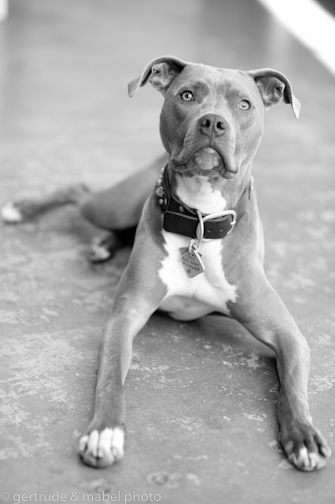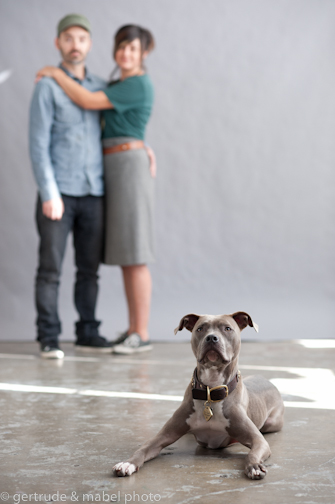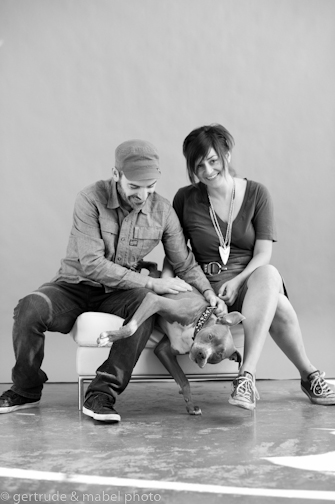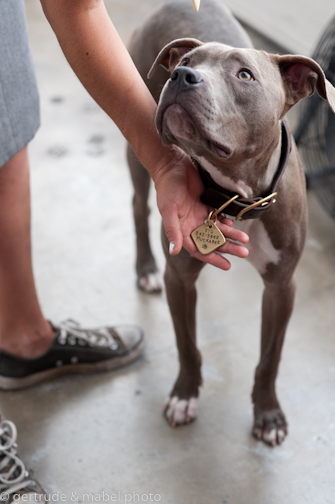
Yesterday was Huckleberry's first birthday, and yesterday we put him down.
Calling the decision we had to make anything less than excruciating would be an understatement. There was nothing physically wrong with him. He was a young, healthy, active dog. To look at him was painful he was so good looking. Did I mention he was also smart? He was highly train-able, got his CGC at the age of 5 months, and we had just begun our second level of nosework. And we loved him. A lot. So why in the world would we put him down?
The problem is that he had an unstable temperament. While it does not appear in the form of a physical illness, like cancer or parvo, it is just as destructive and eats away at the dog from the inside out.
From the second he came into our home, we knew he was “off” and structured our lives accordingly. The shelter told us he’d been seized as a 5 week-old pup, alone, and before he came to us he had bitten the resident vet in the face. We knew he missed some critical milestones and was already displaying inappropriate behavior, so we scrambled to make up for lost time. Everything was a training opportunity. We had behaviorists and trainers evaluate and re-evaluate him as the months went by. Everyone agreed that he had issues that would plague him his entire life, but he was just a puppy. There was something so endearing about the way he would focus so completely on you. No one was wholly convinced he would fail, so why not give him the chance to succeed?
So we did. For the past 8 months we’ve been working so hard. Combining management, training, socialization and conditioning, we worked on slowly making him into a normal dog. In some areas he made leaps and bounds. In others, not so much. Overall, despite the occasional “red flag” his progress was such that we thought the worst was behind us.
But then, almost two weeks ago, he crossed the line we hoped he’d never cross and injured a stranger in the form of a muzzle punch to the face. The good news is that the injury could have been much, much worse, but the fact that he was willing to take matters into his own hands, given his troubled history, was not a good sign. Coupled with the fact that he was just shy of a year old, gaining confidence by the day, and the fact that dogs who bite once (this was an inhibited one) usually bite again but with much more severity, we knew that he was heading in a bad direction.

Don’t be confused, it is not a breed thing, it’s a dog thing. Across the board, a certain percentage of dogs are born “wired wrong” from the get-go. They come in all shapes and sizes and the severity of the unstable temperament varies as well. A dog’s success or failure depends on a variety of factors, including genetics and the human’s willingness to adapt their life around the problem.
We took a hard look at our situation. I wrote out his entire history in search of patterns. We met with all the behaviorists and trainers (yes, plural of each) who had been watching Huckleberry as he’s grown. The prognosis was not good from any of them. None could cite a single success story from a dog matching his personality profile. In every case the dog eventually did major damage to a human being.
Armed with the knowledge about his trajectory, we weighed our options. Medication was not viable as one of the side effects is lowered inhibitions, and that is a dangerous cocktail with a dog who’s warning signs are masked by good behavior. In his case, we had done so much work and behavior modification that he was able to seem perfect and well composed even when in reality he was way over threshold.
We had already modified our lives around his needs to a large extent but in our situation, keeping him safely away from people at all times was simply not a guarantee. Even if we were to never have anyone over to our house again, we live in the city and cannot walk outside the front gate without encountering people. The liability of keeping a known dangerous dog is high, and walking around in public constantly on alert for possible triggers just creates a situation where the dog feeds off of you, a never-ending cycle for a sensitive dog like him.
Adopting him out to someone else was also not an option. Not only is it irresponsible to pass off your problem, but considering the lengths we’d already gone to, there’s not much more another person could do. Basically, if he were going to succeed in a home environment, it would have been with us.
Dropping him off at the shelter would also have been equally irresponsible. A bad shelter would have adopted him out in a heartbeat, where he would then go on to do damage in his new home. A good shelter would have done a battery of temperament tests, most of which he’d fail so he would be euthanised after spending several stressful days in captivity.
For those who believe there is a farm out there where dogs can run free for the rest of their lives, I have a bridge to sell you. But in the world where Santa exists and so does this farm, socially isolating an unstable dog like that would only heighten their confliction if and when a stranger actually showed up on the farm, making them even more dangerous. And again, it would all come down to another person’s management, and management is never fool-proof.
All the options kept swirling around, none looking very good. Meanwhile, Huckleberry continued to be, well, Huckleberry. It’s really easy to make a decision when you have all the facts written up on a piece of paper or summarized in an email. It’s much harder when you have this dog, this otherwise perfect dog, doing charming things all the time, being so perfect and obedient, playing well with Xdog, and laying on your lap, looking lovingly into your eyes. You remember the good times, like the road trip to Mexico where he discovered “the ball.” Or how when you hold the nail clippers he jumps on the couch, rolls on his back, and happily presents his paws. This coming from the dog who wouldn’t allow any handling when he was young.

It’s kind of like a bad relationship. When you’re caught in the midst of one you deny it to all end. I mean, how could that face you love so much be capable of doing any harm? You get caught up in your version of reality, even when you get a hint of the truth. It’s only when you step outside and look back in that you get a clear picture.
In the end, we knew that we really only had one choice. It is simply not responsible to keep a dog that is more than willing to harm a person as his first line of defense. Had he been able to give us any sort of sign or protracted warning before actually inflicting damage then we could work with that, but his inner state is so well masked.
When people say of dog attacks, “it was out of nowhere! I never saw it coming,” that’s not true. Dogs always give signs. In the moment they may not give many signs, but there are always “red flags” leading up to the event. In this case, we saw the “red flags” Huckleberry’s whole life, but then he proved he was willing to take it to the next level. The writing was on the wall and we had to decide which meant more, our love for the dog or the safety of the public.
He had a great final 24 hours. The whole week leading up to his birthday we had thrown house rules out the window. He was allowed to sleep on the bed, eat food off the counter, and completely destroy all of the supervision-only toys. We closed the store and played with him like mad. Friends stopped by to say goodbye. We ordered the “Huckle-Burrito” which consisted of every type of meat the taqueria had, nothing else (they were extremely confused by that phone order), which he ate with gusto, tortilla first.
On the morning of his birthday, we woke up early, went to Huckleberry’s favorite park, played ball until he almost dropped, and took a cool down stroll up Bernal hill to get a full view of the city. We hopped in the car and headed to the vet’s office, where he spent his final moments licking peanut butter and baby food from our hands while we cradled him on the floor.

Goodbye, buddy. We miss you more than you'll ever know.